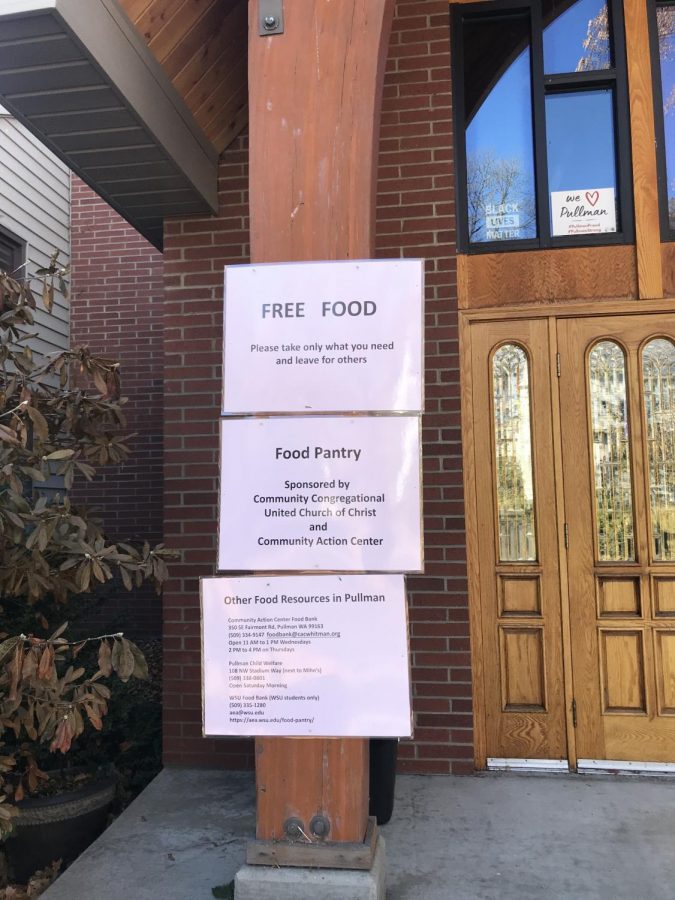Food pantry available to students, residents on College Hill
Pantry is located in front of Congregational United Church of Christ; donations can be placed inside pantry at any time
Nonperishable donations made to the Little Free Food Pantry can be placed inside of the cubby at any time or day.
December 1, 2020
The Community Congregational United Church of Christ created a food pantry to support food-insecure students.
The Little Free Food Pantry is available 24/7 and is located in front of the church at 525 NE Campus St. It opened Nov. 1.
The food pantry was created because COVID-19 has created a huge demand for food resources, especially for people out of work, said Timothy Paulitz, research plant pathologist for the Agricultural Research Service of the United States Department of Agriculture.
The idea for the food pantry was based on the Little Library Idea where people put free books in an outdoor cubby for others to take, Paulitz said.
The Community Action Center changed its food distribution methods because of COVID-19, he said. Before the pandemic, residents would choose the food they needed in a “shopper’s model.” Now, food is distributed via curbside pickup. Other food banks have put similar guidelines in place, but the Little Free Food Pantry is nonrestrictive.
The CAC is providing food for the Little Food Pantry, said Ashley Vaughan, CAC food and nutrition specialist.
More residents are using the CAC’s food bank now when compared to this time last year, Vaughan said. Two weeks ago, the CAC served 121 households.
Some residents are living off of the food they get from CAC because they have lost their job or do not have income, she said.
People can also donate non-perishable food like ramen or canned tuna to the Little Free Food Pantry, Paulitz said. Donations can be placed inside of the pantry at any time.
Paulitz said he expects students to use the pantry because it is located on College Hill, but it is also available to anyone in need.
“I’m sure that they are also facing food insecurity,” he said. “So the idea was that people could walk and pick up a few cans.”
It is important to have several food pantries available throughout Whitman County because not everyone has access to transportation, Vaughan said.
“COVID is [a] scary time but we’re always a resource … we’re pretty much set to help who we need to,” she said.










